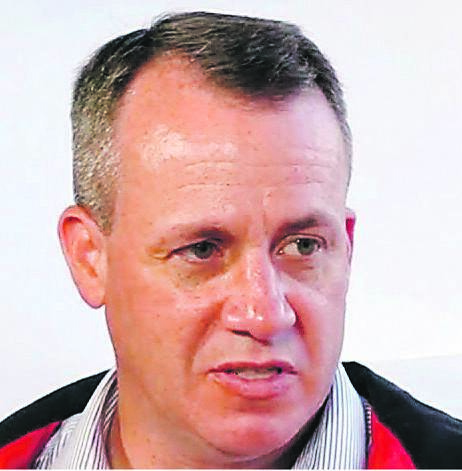
The process to pave the way for social partners to give government the go-ahead to tap into the Government Employees’ Pension Fund (GEPF) as a last-ditch attempt to rescue Eskom is gathering steam, with trade federation Cosatu announcing that the process currently hinges on essential details being ironed out between invested partners.
Cosatu’s parliamentary coordinator Matthew Parks last week said: “We should be able to finalise the Eskom social compact framework agreement in the next few weeks.”
Parks told City Press that Cosatu and a team tasked by the National Economic Development and Labour Council (Nedlac) were busy enriching Eskom’s social compact framework agreement so that it would appeal to those who were in a position to greenlight the plan.
“We have made huge progress in our engagements with social partners in government, business, labour and the community. There’s a 90% consensus on the framework agreement and we are confident we will resolve the remaining issues soon,” said Parks.
The proposed rescue plan entails “a thorough diagnostic of what contributions, both financially and in terms of responsibility, different social partners would each be contributing” towards the mammoth task of turning around the fortunes of the ailing power utility.
“So we look at many different interventions to save Eskom, which is not just a question of financing the debt, but also on the restructuring of Eskom, addressing corruption, wasteful expenditure, the bloated management team and the overpricing that happened when doing business with companies in the private sector,” said Parks.
Eskom’s debt sits at more than R450 billion. Parks said that, after a consensus was reached regarding how much each social partner would contribute to “investing in Eskom”, the ailing entity would not be “given a lump sum” of money.
“If Eskom collapses, all workers’ jobs and pensions will be destroyed. Our economy and every facet of our lives are based on Eskom. It generates 95% and transmits and distributes 100% of our electricity.
“The high tariffs are already having a massive impact on the economy and workers. Load shedding is costing the economy R2 billion a day. Eskom is too big to be allowed to fail,” said Parks.
As a way for the entities that will invest in the bailout to maintain control, Parks said that “the money will be released in tranches. As Eskom cleans up and restructures, more money can be released. This is a lot of money and we are in a huge crisis and, given the level of corruption that the management has engaged in for many years, they need to earn back trust through accountability.”
A Treasury insider said that, for government to tap into the GEPF, it had to get a mandate from the majority of its clients, the trade union federations, after which the Public Investment Corporation (PIC) would get the green light to release the funds.
The trade union federations that have to give consent include the Federation of Unions of SA, Cosatu and the National Council of Trade Unions.
However, a spanner was thrown into the works following Treasury’s announcement of a proposal to trim R160.2 billion from the public wage bill over three years. The proposal has been met with disdain and unions are accusing government of targeting the very workers who are attempting to help rescue ailing state-owned enterprises.
City Press understands that the PIC has already lent Eskom almost R100 billion, which could be turned into equity – if the workers agree. The GEPF could also put more money on top to get more equity.
The plan’s downside is that, if Eskom is liquidated, equity partners lose everything, and creditors will need to be considered.
However, Parks reiterated that “the only way to save Eskom is through a social compact where all parties, ranging from government and business to labour, contribute, compromise and sacrifice”.
He added that Cosatu was pleased with the positive responses received from social partners, workers and pensioners regarding the need to save Eskom and the economy, and the need for a social compact and a turnaround plan.
“Our proposals have been agreed to. They are being enriched by progressive contributions from social partners and society. The framework is the first step forward. It will then be followed by an implementation plan dealing with immediate, short-, medium- and long-term interventions in Eskom and the energy sector,” said Parks.
According to Cosatu, there will be technical task teams to ensure the implementation of the proposal and to regularly report to social partners in the presidential working committee at Nedlac on its implementation.
But “corruption, mismanagement, wasteful expenditure, overpricing, unaffordable tariffs, bloated management, load shedding and maintenance backlogs must be dealt with” before “investments in locally produced renewable energy, new manufacturing opportunities and electric vehicles must begin”.
This will lead to “financial support and investments from the public and private sectors being mobilised. This will be done through investments in government-guaranteed bonds so that there is a return on investment, and by investing in other economic opportunities. There will be no blank cheques.
Financial support to ease the unsustainable debt burden will come through in tranches as Eskom implements the agreed turnaround plan.”




 Publications
Publications
 Partners
Partners









